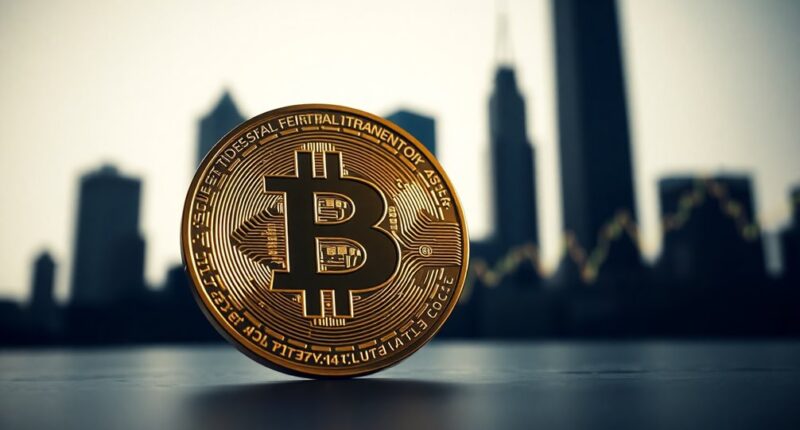You might have noticed the Central Bank of Iran's quiet foray into Bitcoin. Their consistent purchases raise intriguing questions about the motives behind this strategy. Are other institutions observing and preparing to follow suit in the shadows? As regulations shift, the implications could ripple through the entire crypto market. The stakes are high, and the geopolitical landscape is evolving. What could this mean for the future of cryptocurrency and international relations?

In recent years, the Central Bank of Iran (CBI) has subtly embraced cryptocurrency, particularly Bitcoin, as a strategic tool to navigate economic sanctions. You might wonder why this shift is significant. After all, just a few years ago, the CBI prohibited financial institutions from dealing with cryptocurrencies due to concerns over anti-money laundering (AML) and counter-terrorism financing (CTF).
But now, the landscape is changing, and the CBI's regulatory framework is evolving to support the burgeoning crypto industry. With the introduction of new licensing requirements, the CBI aims to regulate crypto brokers and custodians effectively. This move not only ensures compliance with AML and CTF regulations but also helps the government collect tax obligations.
It's a balancing act, really, as Iran seeks to maintain oversight while reaping the economic benefits that digital currencies can offer. The CBI collaborates with various agencies, including the Ministry of Economic Affairs and Finance, to create a robust regulatory mechanism for digital assets.
As you delve deeper, it becomes clear that the motivation behind this regulatory shift is multi-faceted. Cryptocurrency serves as a potential revenue source and a means to mitigate the effects of crippling economic sanctions. While there's no specific data on the CBI's steady Bitcoin buys, it's evident that Iran has utilized cryptocurrency for international transactions, effectively bypassing sanctions.
This strategy raises questions—are institutions quietly amassing Bitcoin to strengthen their financial positions? The CBI's actions suggest a growing acceptance of cryptocurrency within the Iranian economy. Legalizing crypto mining in 2018 was a significant step, despite challenges with illegal operations.
Discussions about a national cryptocurrency and the introduction of the digital rial indicate a commitment to enhancing digital transactions. Yet, the reality of energy challenges looms large, as illegal Bitcoin mining exacerbates power shortages, prompting calls for stricter regulations.
As citizens turn to digital assets like stablecoins to hedge against inflation, the demand for cryptocurrencies continues to rise. You can see how this creates a tension between regulatory ambitions and economic necessities. Compliance with AML regulations is crucial to avoid penalties and ensure a sustainable crypto market.
The CBI's increased oversight of the crypto market and the closure of rial payment gateways for exchanges reflect a concerted effort to control transactions, but it also poses questions about the future of Iran's cryptocurrency landscape.
In this intricate web of economic and geopolitical implications, the CBI's quiet accumulation of Bitcoin could be a pivotal move. It might just be a matter of time before the world pays closer attention to Iran's evolving relationship with cryptocurrency, especially as institutions appear to be amassing their positions in silence.









